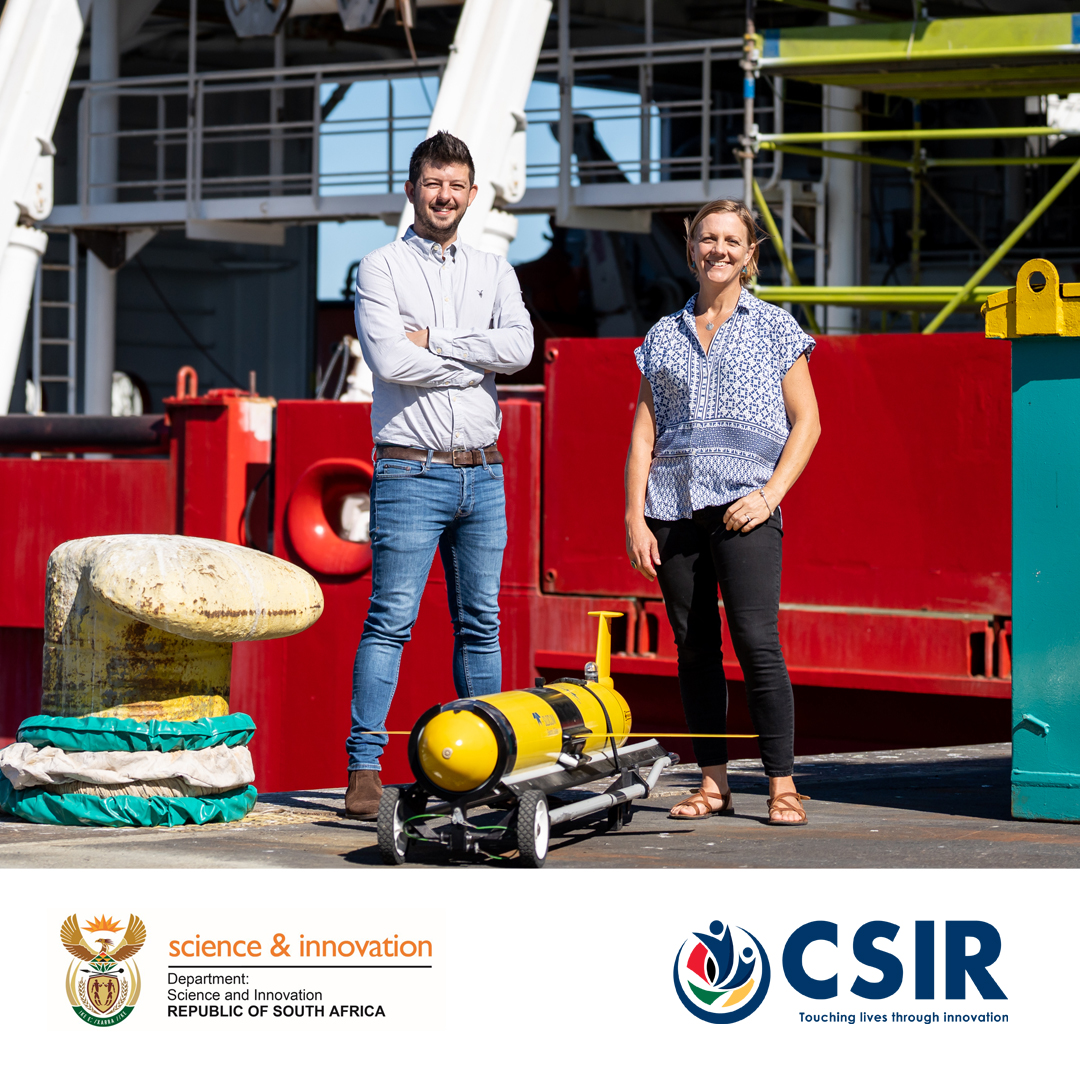Multidecadal trend of increasing iron stress in Southern Ocean phytoplankton
Research undertaken by a South African (Department of Science and Innovation-funded) climate science group at the Council for Scientific and Industrial Research (CSIR) has revealed an increase in iron stress in the phytoplankton of the Southern Ocean over a period of 26 years. The study – published in the highly rated journal, Science – raises concerns that the increase in iron stress may lead to a decline in the productivity of these microscopic marine plants, which would have a negative impact on the future of Earth’s climate and ecosystem energy supplies.
CSIR senior researcher Dr Thomas Ryan-Keogh and CSIR research group leader for the Southern Ocean Carbon-Climate Observatory Dr Sandy Thomalla are co-lead authors of this high-impact research, which suggests that there may be a reduction in the supply of iron to the Southern Ocean’s surface sunlit waters.
Outlining the significance of the research, Ryan-Keogh says that the Southern Ocean is a globally important region that helps to mitigate the impacts of climate change by absorbing, mainly through physical processes, a significant proportion of the man-made carbon dioxide that is emitted through the burning of fossil fuels. “Almost half of all the anthropogenic carbon dioxide that dissolves in the ocean does so here,” he says.
“Non-anthropogenic carbon dioxide in the atmosphere is regulated by plants on land and phytoplankton in the ocean, as part of the natural carbon cycle, but changes in this cycle can influence the ability of the ocean to absorb anthropogenic carbon dioxide,” he adds.
“Iron is an important building block for phytoplankton photosynthesis. Therefore, changes in iron availability in the southernmost waters of the world ocean directly affect photosynthesis and limit the growth of phytoplankton in this vast oceanic region.”
“But the ocean processes that drive the availability of iron in the Southern Ocean are not very well understood, particularly if we want to know how it has changed across multiple decades,” says Ryan-Keogh.
In the study, the researchers developed a new method that looks at a physiological response of phytoplankton to iron availability to determine whether or not it is limiting. They applied the method retrospectively to 26 years of in situ data collected from the Southern Ocean by both research ships and underwater robotic platforms between 1996 and 2022.
Thomalla explains, “Across this time period, we found that Southern Ocean phytoplankton are becoming increasingly iron stressed, which suggests that there may be a reduction in the supply of iron to the surface sunlit waters. This increase in iron stress impacts phytoplankton growth negatively, with the large majority of the Southern Ocean becoming less productive over time. This has important implications for the role of marine plants in driving the natural carbon cycle and ecosystem energy supplies.”
“Interestingly, these trends are the opposite of what is currently being predicted by Earth system models, which instead propose that the Southern Ocean will become more productive over the next century,” says Thomalla. The researchers believe that this contradiction suggests that Earth system models may be underestimating ongoing change in the natural carbon cycle in this globally important region, which may impact the uncertainties of climate projections. They plan to collaborate with their international counterparts to further understand why the Earth system models are not able to reproduce the current trends.
Ryan-Keogh says the national lockdown brought about by the Covid-19 pandemic proved to be beneficial for this research as it allowed him the time to source and investigate almost three decades’ data. This was made possible by the supercomputing capabilities of the Centre for High Performance Computing, one of three pillars of the national cyber-infrastructure intervention supported by the Department of Science and Innovation. What emerged was the understanding that physical aspects of climate change, and lesser known biological and chemical aspects, are all affecting the primary productivity of the Southern Ocean.
The research findings, which point to a disruption of the natural carbon cycle at a significant scale, are likely to generate much discussion among oceanographers and climate scientists around the world.
The paper is available at: https://www.science.org/doi/10.1126/science.abl5237

-ENDS-
Issued by CSIR Strategic Communications
For more details, contact:
David Mandaha, CSIR Media Relations Manager
Tel: 012 841 3654
Mobile: 072 126 8910
Email: dmandaha@csir.co.za
About the CSIR:
The CSIR, an entity of the Ministry of Higher Education, Science and Innovation, is one of the leading scientific and technology research, development and implementation organisations in Africa. Constituted by an Act of Parliament in 1945 as a science council, the CSIR undertakes directed and multidisciplinary research and technological innovation, as well as industrial and scientific development to improve the quality of life of all South Africans. For more information, visit www.csir.co.za
Follow us on social media:
Twitter: @CSIR, @SOCCO_science. @tjryankeogh, @SandyThomalla . Facebook: CSIRSouthAfrica, Southern Ocean Carbon-Climate Observatory. Instagram: CSIRSouthAfrica. LinkedIn: Council for Scientific and Industrial Research (CSIR). YouTube: CSIRNewMedia
Contact Person: David Mandaha, @email, +27 (12) 841 3654 / 072 126 8910